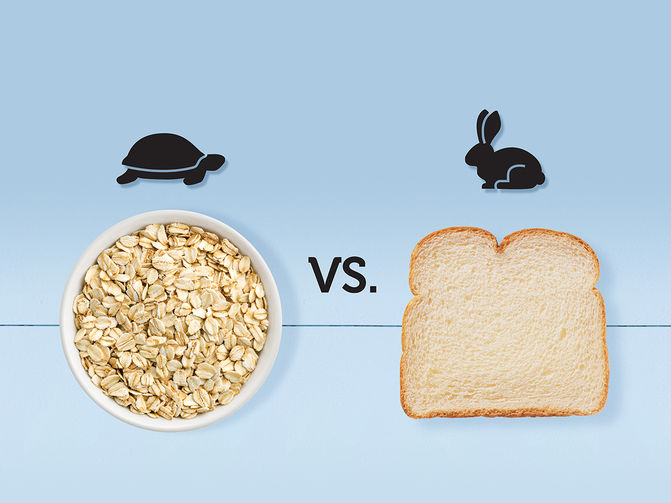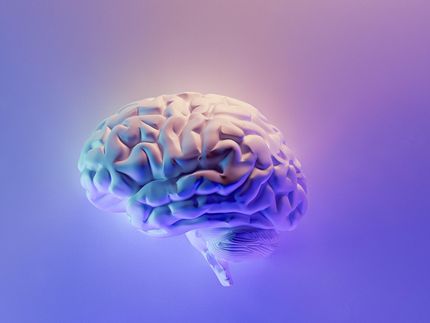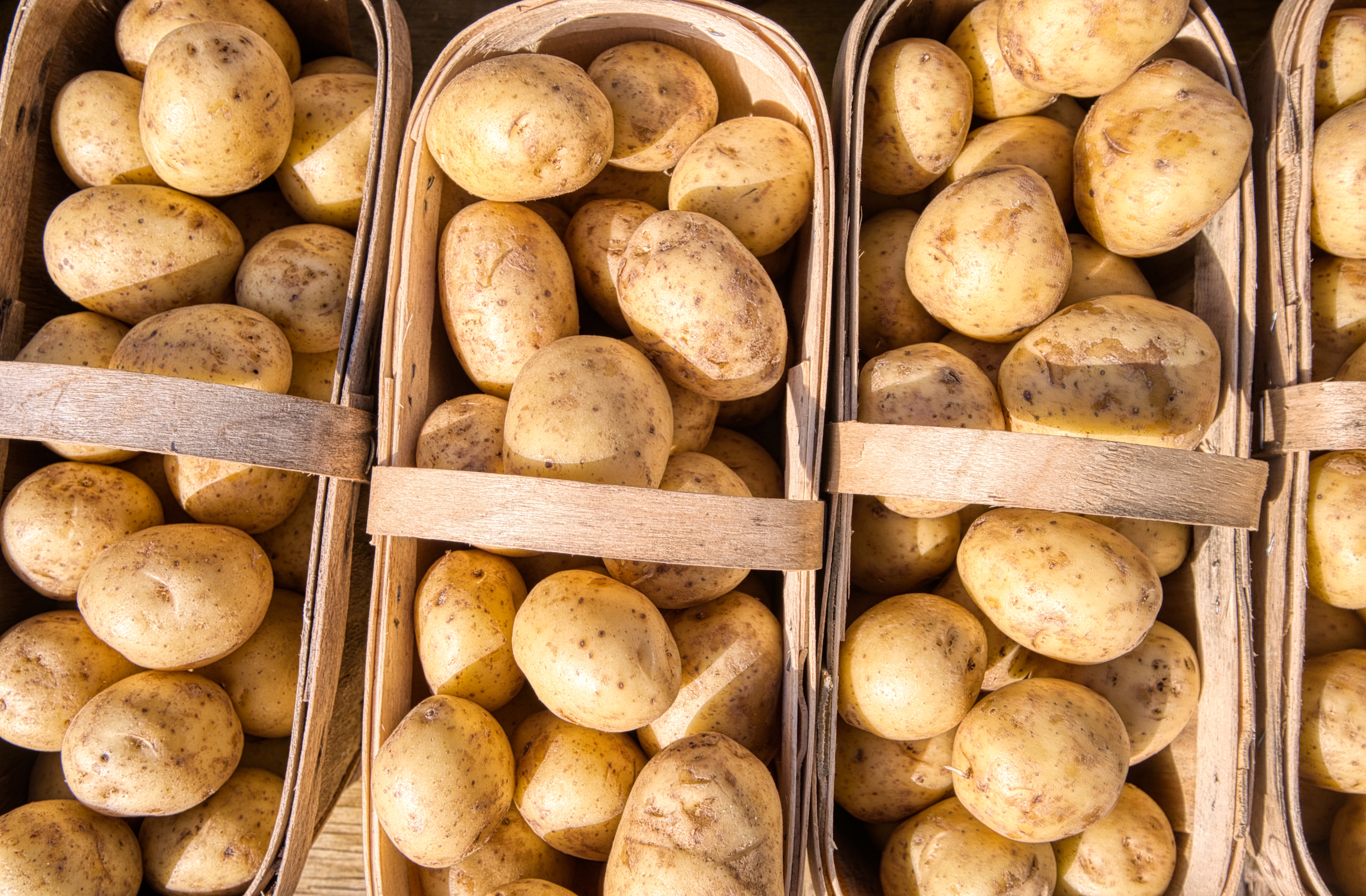New study disproves “fast carbs make you fat” claim
In-depth analysis shows dietary glycemic index not a determinant of weight gain or loss
Washington, DC – A study recently published in Advances in Nutrition, a peer-reviewed nutrition journal from the American Society for Nutrition, concludes that high-glycemic (high-GI) foods (often called “fast carbs”) are no more likely than low-GI foods (often called “slow carbs”) to lead to weight gain – and no less likely to lead to diet-induced weight loss.

New study concludes that “fast carbs” are no more likely than “slow carbs” to lead to weight gain – and no less likely to lead to diet-induced weight loss.
Grain Foods Foundation
Undertaken to assess the hypothesis that high-GI foods promote fat storage and increase risk of obesity by causing a rapid increase in blood sugar and insulin secretion, and that low-GI foods do the opposite, the comprehensive study analyzed data on 43 cohorts from 34 publications (comprising nearly two million adults) to assess if dietary glycemic index impacts body weight.
“This study is the first to definitively demonstrate that fast carbs do not make you fat,” says study co-author Glenn Gaesser, PhD, professor of exercise science in the College of Health Solutions at Arizona State University. “Contrary to popular belief, those who consume a diet of high-GI foods are no more likely to be obese or gain weight than those who consume a diet of low-GI foods. Furthermore, they are no less likely to lose weight.”
In the simplest terms, the study’s overarching conclusion was that “GI, as a measure of carbohydrate quality, appears to be relatively unimportant as a determinant of BMI or diet-induced weight loss.”
More specifically:
- In the 27 cohort studies that reported results of statistical comparisons, 70% showed that BMI was either not different between the highest and lowest dietary GI groups (12 of 27 cohorts) or that BMI was lower in the highest dietary GI group (7 of 27 cohorts).
- Results of 30 meta-analyses of RCTs from 8 publications demonstrated that low-GI diets were generally no better than high-GI diets for reducing body weight or body fat.
- Although low-GI diets with a dietary GI at least 20 units lower than the comparison diet resulted in greater weight loss in adults with normal glucose tolerance, it did not do so in adults with impaired glucose tolerance.
Taking a broad look at the data, co-authors Julie Miller Jones, PhD, LN, CNS, and Siddhartha Angadi, PhD, highlight the key takeaways for consumers in the context of ever-evolving nutrition research.
“The review questions the premise that low-GI diets lead to substantially better weight control outcomes and reminds us of the many other qualities of carbohydrates that are far more important to consider: for example, nutrient density, dietary fiber and whole grain content, and percentage of added sugar,” says Angadi.
According to the authors, the study also highlights the need for both researchers and nutrition communicators to be mindful of the many positive nutrients that staple carbohydrate foods contribute to diet quality, as well as the detractor nutrients that indulgent foods often contain, when characterizing or communicating the quality of carbohydrates.
“The key takeaway is that carbohydrates, regardless of type, can be part of a healthy diet and have a place on a healthy plate,” says Miller Jones. “Over the past few decades, we’ve seen the blanket vilification of carbs, processed foods, and foods made with refined grains. Science has shown that these foods in the right balance can be part of a dietary pattern that can promote a healthy weight and reduce disease risk. The truth is that eating a wide variety of carbohydrates, from fast-carb white bread to slow-carb bran flakes and pairing them with smart choices from all the food groups can provide the nutritional benefits that healthy carbs, especially whole and enriched grain staple. foods, can offer.”
Most read news
Topics
Organizations
Other news from the department science

Get the food & beverage industry in your inbox
By submitting this form you agree that LUMITOS AG will send you the newsletter(s) selected above by email. Your data will not be passed on to third parties. Your data will be stored and processed in accordance with our data protection regulations. LUMITOS may contact you by email for the purpose of advertising or market and opinion surveys. You can revoke your consent at any time without giving reasons to LUMITOS AG, Ernst-Augustin-Str. 2, 12489 Berlin, Germany or by e-mail at revoke@lumitos.com with effect for the future. In addition, each email contains a link to unsubscribe from the corresponding newsletter.



























































